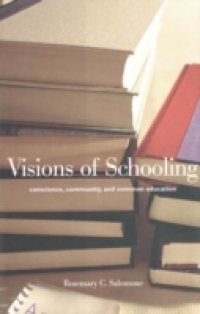At no time in the past century have there been fiercer battles over our public schools than there are now. Parents and educational reformers are challenging not only the mission, content, and structure of mass compulsory schooling but also its underlying premiseâthat the values promoted through public education are neutral and therefore acceptable to any reasonable person. In this important book, Rosemary Salomone sets aside the ideological and inflammatory rhetoric that surrounds today’s debates over educational values and family choice. She offers instead a fair-minded examination of education for democratic citizenship in a society that values freedom of conscience and religious pluralism. And she proposes a balanced course of action that redefines but does not sever the relationship between education and the state.Salomone demonstrates how contemporary conflicts are the product of past educational and social movements. She lays bare some of the myths that support the current government monopoly over education and reveals how it privileges those of economic means. Through a detailed case study of recent controversy in a suburban New York school district, the author explores the legal and policy issues that arise when widely disparate world views stand in the way of political compromise on educational materials, techniques, and programs. Salomone builds a case for educational governance that places the developmental needs of the child at the center of family autonomy. She advances a plan that respects diverse values and visions of schooling while preserving the core commitments that bind our nation.

